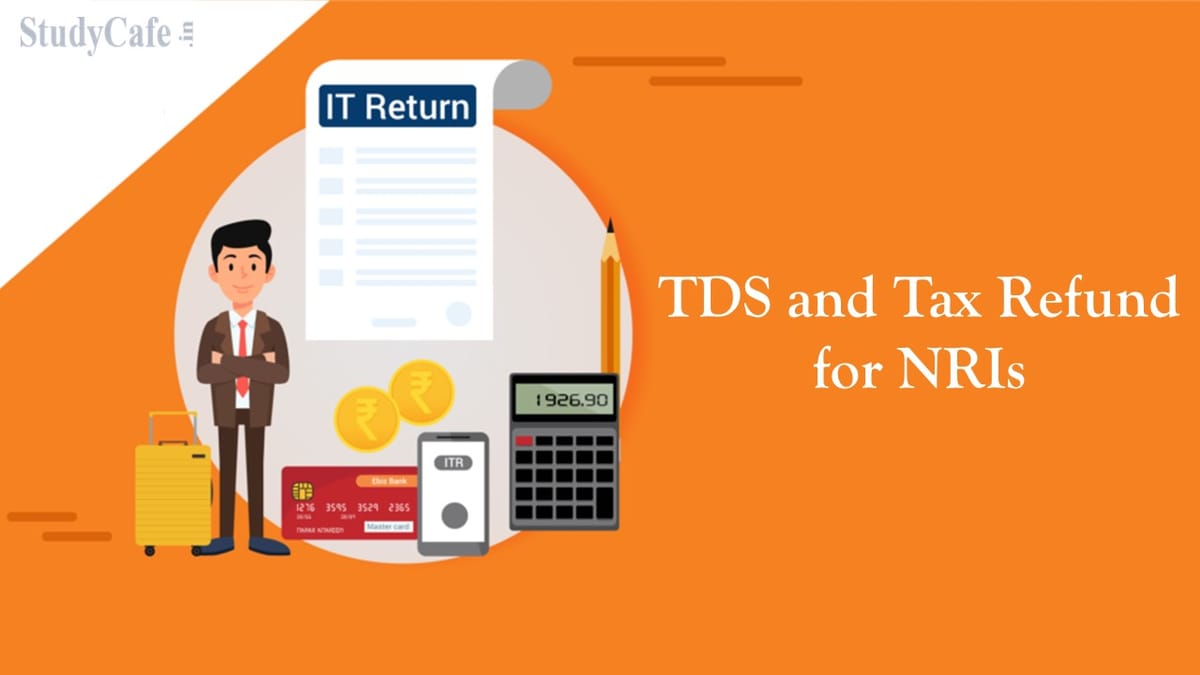TDS and Tax Refund for Non-Resident Indians (NRIs)
Deepshikha | Apr 12, 2022 |

TDS and Tax Refund for Non-Resident Indians (NRIs)
When it comes to NRIs, Indian tax laws are extremely tough. Even if his income is less than Rs. 2.5 lakhs, any payment given to an NRI must be made after deduction of TDS (i.e. in the 0% income tax slab)
The NRI, on the other hand, can claim a reimbursement of the excess TDS deducted when filing his income tax return.
This article explains in detail and simple words the procedure for claiming TDS Refund.
TDS is deducted on all sorts of income made by NRIs in India under Section 195. The following are the most common types of income that most NRIs obtain from India and on which TDS is deducted:
After the conclusion of the financial year, the NRI must file an income tax return in India to claim a refund of the TDS deducted.
The NRI will be required to self-calculate his income and tax due based on the slab rates while filing his income tax return.
This Income Tax Return must be filed by the NRI by July 31st of the following fiscal year. Any delay after July 31st but before December 31st will result in a penalty of Rs. 5,000, and any delay after December 31st but before March 31st would result in a penalty of Rs. 10,000.
For example, the deadline to file an income tax return for the fiscal year 2017-18 is July 31, 2018. A penalty of Rs. 5,000 will be imposed if the return is filed after July 31, 2018, but before December 31, 2018. If the return is filed after December 31, 2018, but before March 31, 2019, a penalty of Rs. 10,000 will be imposed.
In the event of NRIs, ITR 1 cannot be submitted for the Financial Year 2017-18 and forward. As a result, NRIs should file either ITR 2 or ITR 3.
If the NRI has revenue from a business in India, ITR 3 will apply; if the NRI has no income from a business in India, ITR 2 will apply.
It is vital to highlight that rental income or capital gains on the sale of property, mutual funds, shares, or bonds are not deemed a business, and so ITR 2 would apply.
The following situations necessitate the filing of an ITR:
NRIs were entitled to file ITR Form 1 for income earned in fiscal years 2016-17 and prior. ITR Form 1 is quite straightforward to fill out, and an NRI may easily do it on his own.
NRIs must use ITR 2 for income from the fiscal year 2017-18 onwards. Although NRIs can file ITR 2 on their own, it is more involved than ITR 1.
If the NRI is filing the ITR 2 on his own, he can get the Excel or Java software from the IRS website. It is recommended that the NRI only selects the relevant sheets applicable to him from the Home Tab in the ITR Form; otherwise, it will become quite hard for NRIs who are completing it themselves.
In case of any Doubt regarding Membership you can mail us at contact@studycafe.in
Join Studycafe's WhatsApp Group or Telegram Channel for Latest Updates on Government Job, Sarkari Naukri, Private Jobs, Income Tax, GST, Companies Act, Judgements and CA, CS, ICWA, and MUCH MORE!"